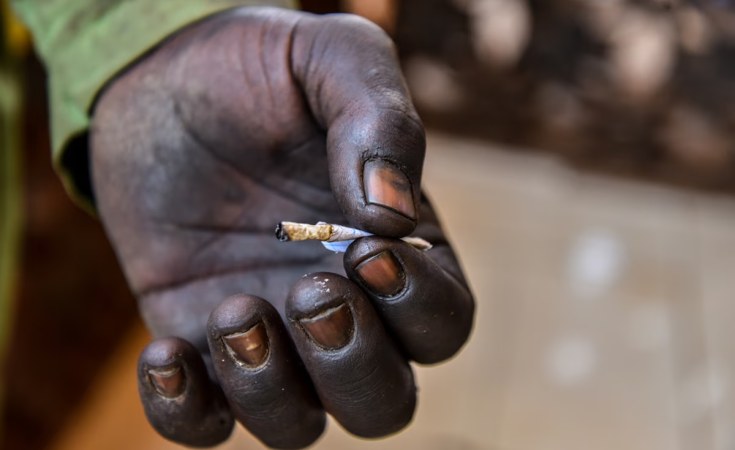After 5 years, Doctors Without Borders (MSF), at the end of June, handed over Medically Assisted Therapy (MAT) treatment facilities in Kiambu, Kenya to the Department of Health and Kenya Prison Services.
This milestone handover of the clinics is made possible due to the training of healthcare workers, and the County Department of Health Services and Kenya Prisons Services commitment to provide the services to people who use drugs. “We have healthcare workers who now have the knowledge on patient care and management of the clinic,” says Dr Elius Maina, County Executive Committee Member, Department of Health Services. “We acknowledge that the MAT services are still crucial for the patients from Kiambu, and for that reason, we will continue with the services even after MSF exit.”
Kiambu ranks amongst the top counties in Kenya with the highest number of people who use drugs (PWUDs), specifically heroin use. However, before 2019, there was no existing medical facility providing care for these patients, with few accessing services in Nairobi, over one hour away from most patients.
Since September 2019, 1,619 people have benefitted from this holistic program, with 556 currently receiving care in the clinics. The MAT services are offered within the precincts of Karuri Level 4 Hospital in the Banana area to reduce opioid addiction, like heroin, related health risks and deaths and improve the lives of people who use drugs. Two other clinics run in partnership with Kenya Prisons Services in Ruiru Prisons Staff Training College (PSTC) Health Centre and Thika GK Prison, now serve both incarcerated patients and patients from the communities. The services were run in partnership with the County Government of Kiambu, Kenya Prisons Services, the National AIDS and STI's Control Programme (NASCOP) and LVCT Health.
The three clinics provide methadone and Buprenorphine, in liquid and tablet forms, respectively, as opioid substitution therapy (OST), a component of harm reduction. “The harm reduction approach aims at reducing negative health, social, legal and financial consequences of drug addiction,” explains Dr Edi Atte, MSF Country Director in Kenya. “The MAT clinics are one stop medical facilities approach, with a holistic approach to treatment beyond opioid substitution. This includes the prevention of infections and transmission of HIV and viral hepatitis which are caused by using unsterile needles, prevention and treatment of TB, mental health and psychosocial support, and re-integration support with family and community,” he explains.
Patient-centered approaches and innovations such as take-home doses, prison deliveries to incarcerated patients, decentralisation of care and satellite dispensing sites increase access to MAT services, and recovery chances of people who use drugs. Access to care and proximity to healthcare facilities remain key enablers for health-seeking for this key populatio
Pharmacy technician, Thomas Njenga dispenses Buprenorphine tablets for a patient. Buprenorphine is an alternative opioid substitution therapy to methadone
MSF has made significant contributions by establishing clinics closer to patients’ homes to enhance adherence to treatment, including in the prisons and satellite dispensing sites in primary healthcare facilities near them. Patients unable to access the daily methadone dose due to various reasons like illness, injuries or school, get daily home or hospital deliveries through peer educators. To enhance social reintegration and economic self-reliance, for patients already stable and in school or working, with good support in their recovery journey, and who are unable to make it daily to the facilities, they receive at most two weeks of dosage, that is packaged and locked in a safe box for safe keeping at home.
Beyond medical care, social reintegration and support for patients remains a critical factor in enhancing recovery, and reducing stigma as social and economic support reduces the chances of relapsing. Community support and acceptance, including among healthcare workers, play an important role in PWUDs’ recovery journey and adherence to treatment.


